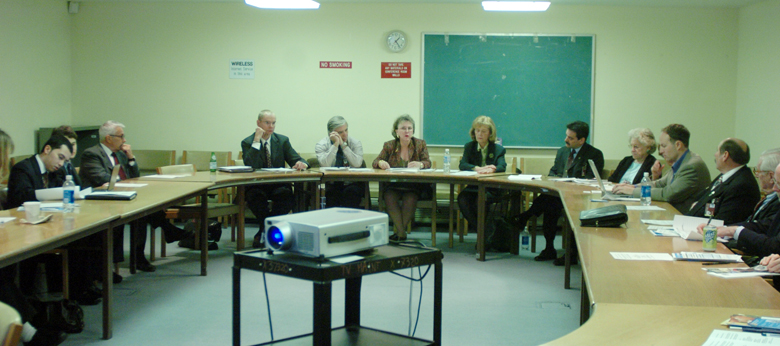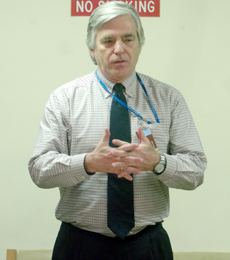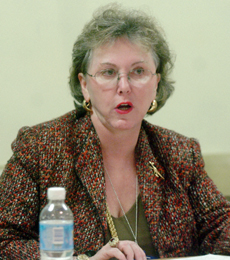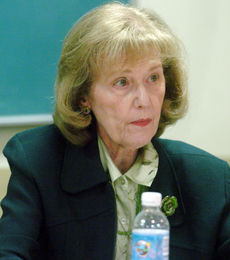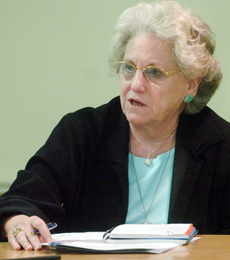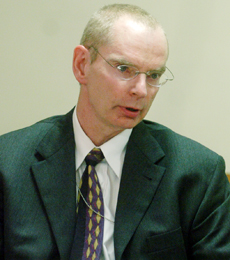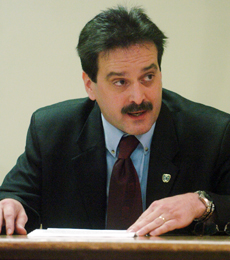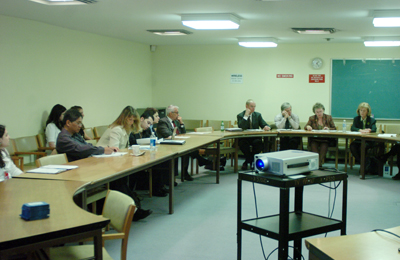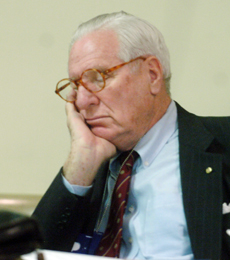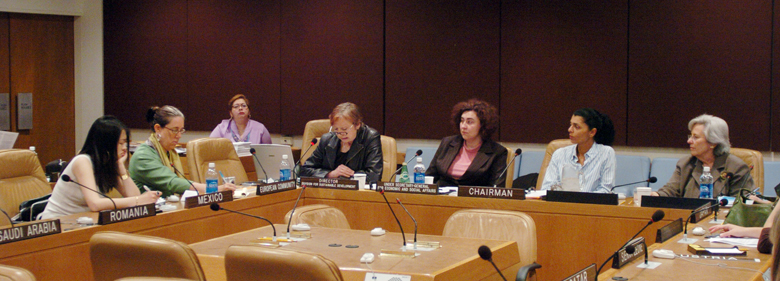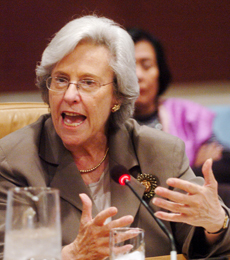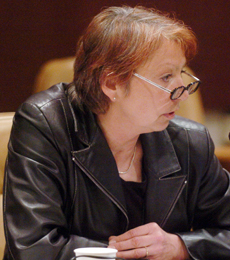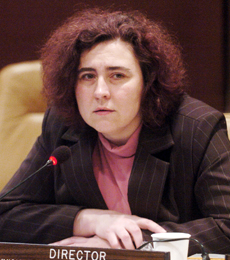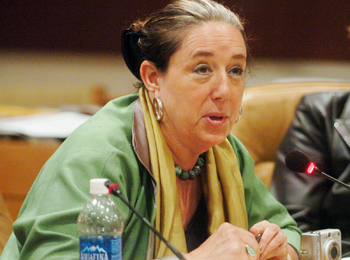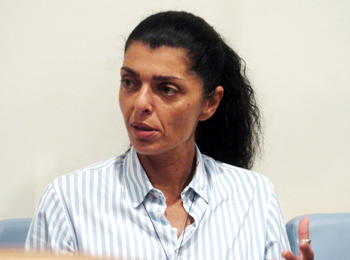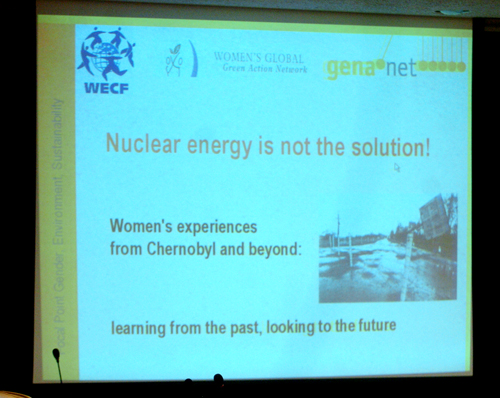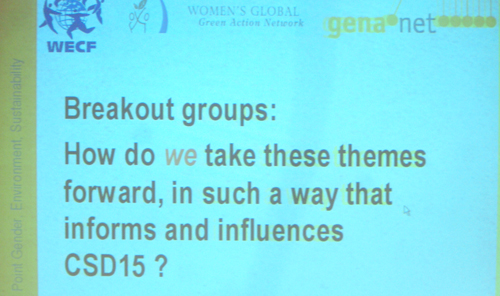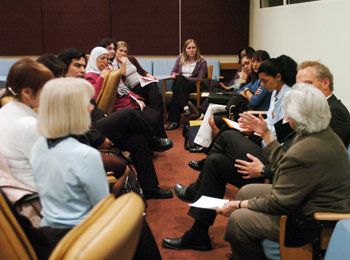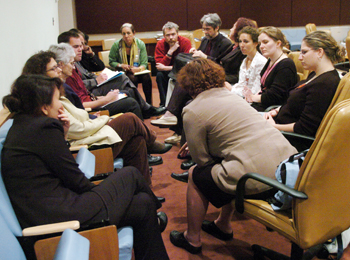 |
||
|
published by IISD, the International Institute for Sustainable Development
in cooperation with the UNDP Secretariat |
|||
|
Special Report on Selected Side Events at the Fourteenth Session of the Commission on Sustainable Development (CSD-14)
|
|||||
| 1-12 May 2006 | United Nations Headquarters, New York | |||||
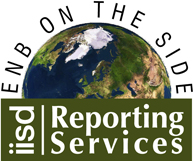 |
 |
|||
 |
||||
Events convened on Friday, 12 May 2006
|
Energy and Air Pollution: a Children’s Health Perspective Presented by World Information Transfer, NGO Committee on Sustainable Development and World Association of Girl Guides and Girl Scouts |
||||
|
Roma Stibravy, NGO Committee on Sustainable Development, said that fossil fuels are expected to provide the bulk of the world’s energy in the absence of radical changes, noting the North-South disparity in energy consumption. She highlighted the severe health effects of air pollution, and noted that the perspective of children has not been addressed at CSD-14. William Rom, NYU School of Medicine, noted that there are roughly 50 years left in the fossil fuel era, giving impetus to the development of alternative energy. He highlighted that health effects linked to air pollution go back to the beginning of the industrial revolution, primarily linked to ground-level ozone, sulfur and nitrogen oxides, particulate matter, carbon monoxide, and lead. He noted that the smallest particulate matter (under 2.5 microns) is also the most toxic, and is associated with combustion. He added that such pollutants are closely correlated with health defects such as smaller head size at birth, and decreased lung capacity. He noted that detrimental health effects have been linked to particulate matter levels well below what is currently considered acceptable, adding that this standard will be re-evaluated this year. Edward Emory, World Information Transfer, recalled that the first law of petro-politics is that the integrity of democratic governance tends to decline along with the availability of fuel, and that a corollary of this is that the increased efforts to secure dwindling fossil fuel supplies leads to the diversion of resources and attention away from health and environmental concerns. He remarked on the rapid rise of the automobile culture and associated noise pollution, adding that this has had profound psychological impacts, such as stress and cognitive impairment, and physiological symptoms, such as increased blood pressure, heart rates, and weakened immune systems, adding that infants and children are particularly vulnerable. Glenn Schafman, Tekneco Solutions Inc., noted the need for politicians to act on previously proposed solutions, and to address the health effects of electricity production based on fossil fuels, adding that nuclear does not present a safe or viable option. Patricia Scharlin, World Association of Girl Guides and Girl Scouts, emphasized the need to communicate the health hazards associated with burning biofuel indoors, noting a recent health initiative developed by her organization. Participants discussed: the need to focus on preventative policy; the lack of discussion of nuclear power at CSD-14; and the relative benefits associated with solar cookers and improved cook stoves. |
||||
|
|||
|
Nuclear Energy is Not the Solution: Women’s Experiences from Chernobyl and Beyond Presented by Women in Europe for a Common Future |
||
|
Minu Hemmati, Gena Net, described her experience as a 22-year old living in Germany during the Chernobyl disaster. She underscored lessons learned, including that being political means more than demonstrating and voting. She emphasized that it involves racking one’s brain and searching ones heart for how to promote the clean technologies that society needs to embrace.
Ulrike Röhr, Gena Net, said that women in Germany after the Chernobyl accident tried to de-contaminate the area, disseminate correct information, lobby for the phase out of nuclear and seek endorsement of renewable energy. She also said that globally, women oppose nuclear energy more commonly than men, noting that this stems from women’s higher perception of risk and their innate tendency to protect future generations. Anna Golubovska-Onisimova, MAMA-86, provided her experience of living in Kiev, Ukraine, which is 100km from Chernobyl and said the combination of the accident and having a child inspired the creation of MAMA-86. She noted that the Ukrainian government has decided to build 20 new reactors by 2030, which further emphasizes the need to ensure non-nuclear energy options, saying women have a unique role in delivering this message. Melinda Kramer, Women’s Global Green Action Network, described Kaisha Atakhanova, a Kazakhstan biologist who studied the effects of radiation on plants and animals and who fought to keep nuclear waste out of her country. Kramer said that in 2003 Atakhanova won the fight, yet the Kazakhstan government is once again trying to open their borders to the world’s nuclear waste. Alice Slater, President of the Grace Policy Institute, highlighted the inextricable link between nuclear weapons and nuclear energy and discussed weaknesses in the non-proliferation treaty, saying that every nuclear power plant is a potential bomb factory. She noted her optimism for solar, wind, geothermal, and tidal energy. Claire Greensfelder, Plutonium Free Future, explained the history of the nuclear struggle in the US, saying that no nuclear power plants have been ordered since 1973. She described her evolution from anti-nuclear to pro-safe energy activist, saying that spotlighting a problem without suggesting an alternative solution is ineffective. Ulrich Kelber, Deputy Parliamentary Leader of the Social Democrats, Germany, said that Germany is one of the few countries that have decided to phase out nuclear energy and described the history behind this decision. He highlighted that 17 out of 25 EU countries do not use nuclear power, and explained that while nuclear power employs 35,000 people, renewable energy employs 170,000, and that this figure is likely to increase. Participants then split into breakout groups to discuss questions highlighted by Alex Villar-Hauser, Jarron: first, how to take these themes forward in such a way that informs and influences CSD15, and second, how to keep the dialogue going beyond today. |
||
|
|||
|
||
|
Click the above button to go back to our ENB main coverage
|
||
|
|
|
|
|
||
|
